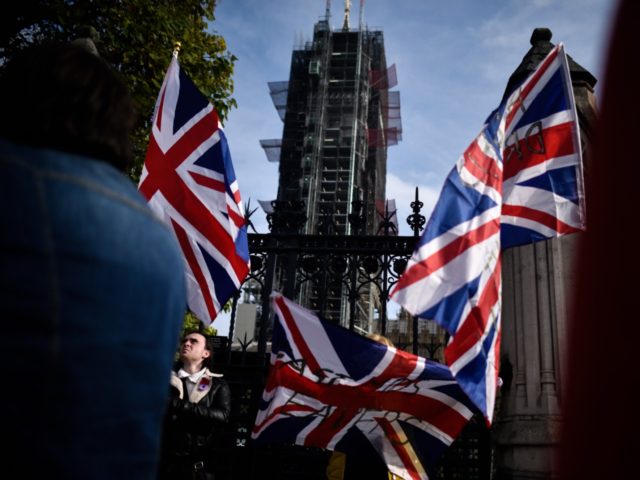The United Kingdom has failed for a third time to leave the European Union on a date set by its political leaders, just the latest instalment in a saga of delays and broken promises in the near three and a half years since the country voted in favour of Brexit.
October 31st 2019 is the latest in a series of dates on which the United Kingdom was meant to Brexit and leave the European Union. The first, on March 29th 2019, came some two years and nine months after the original referendum, triggered after a long period of fruitless negotiation ann delay. But it was cancelled after the Remain-supporting Prime Minister Theresa May’s negotiated withdrawal agreement failed to pass Parliament.
This failure eventually brought down the May government, just as the Brexit referendum itself had brought down David Cameron. But it also kicked the Brexit can down the road, a result which Brexit Party leader Nigel Farage predicted with some prescience back in February would lead to delay after delay from that point, putting off Brexit forever.
And indeed it was so — the failure to deliver the March date led to an April 12th date, which itself gave way to October 31st. That date now passing, with the commemorative Brexit coins minted to mark it being melted down.
The next departure date dangled before the noses of the British people is January 31st — which itself will likely be cancelled in favour of another date later in 2020.
Boris Formally Accepts #Brexit Delay, Begs EU Not to Delay AGAIN in 2020 https://t.co/8LHw0wIYao
— Breitbart London (@BreitbartLondon) October 28, 2019
While British voters will likely have already realised that the latest Brexit delay isn’t exactly Boris Johnson’s fault and is a defeat inflicted upon him by an overwhelmingly pro-EU parliament, it remains true that the Prime Minister has persistently made promises he knew he couldn’t keep.
On dozens of occasions from June to as recently as mid-October Mr Johnson has vowed that he would deliver Brexit “do or die” by October 31st, “no ifs or buts”, as he vowed that he would never send a letter to the EU asking for another extension and that the United Kingdom was “coming out of the EU on October 31, come what may”.
The Prime Minister knew he didn’t have the numbers in parliament to allow him to keep these promises, and to what extent the British electorate will now feel Mr Johnson was willfully misleading them with these repeated dishonest claims will be revealed at the ballot box.
Boris Sends EU Letters: One Asking for #Brexit Delay, One Saying He Doesn’t Want One https://t.co/GguS1KvBRi
— Breitbart London (@BreitbartLondon) October 20, 2019
While serious concerns remain that Boris Johnson’s deal — just like Theresa May’s before it — isn’t a true Brexit or an honest delivery of what the British people voted for in 2016, merely stripping Britain of its EU representation and a £39 billion divorce settlement while plunging it into “transition” negotiations in which it will otherwise remain an EU member in all but name, it is Parliament which has been the greatest impediment to even this watered-down “Brexit”.
Despite having voted to give the country a Brexit referendum in the first place, and the majority of MPs having been elected on party manifestos promising to honour the outcome, the House of Commons has persistently voted to delay, frustrate, and subvert Brexit for years.
The saddest irony of these lost years is that a Brexit-majority country has been represented by a Brexit-minority Parliament.
The United Kingdom will have a chance to redress the balance in six weeks time, when the nation goes to the polls in a snap general election which, some hope, will clear out Parliament and institute a new pro-Brexit House.
Yet the nature of Britain’s first-past-the-post election system means a strong national showing doesn’t necessarily mean a government — Theresa May’s embarrassing 2017 election defeat came despite her getting a significantly higher national vote share than David Cameron in 2015. The difference was simply the distribution of the votes in key marginal seats where May’s Tories came a very close second in dozens of areas, robbing her of a Parliamentary majority.
If there isn’t a pro-Brexit majority after the election the country returns to the status quo of the past three years of no Brexit in the thin disguise of perpetual delay, while simultaneously preventing any minority government from governing the country.
Farage Urges Boris to Agree Election Pact, or Tories Will Be Responsible for ‘Saddling Country with Corbyn Govt’ https://t.co/dgr1qPQPT7
— Breitbart London (@BreitbartLondon) September 20, 2019

COMMENTS
Please let us know if you're having issues with commenting.